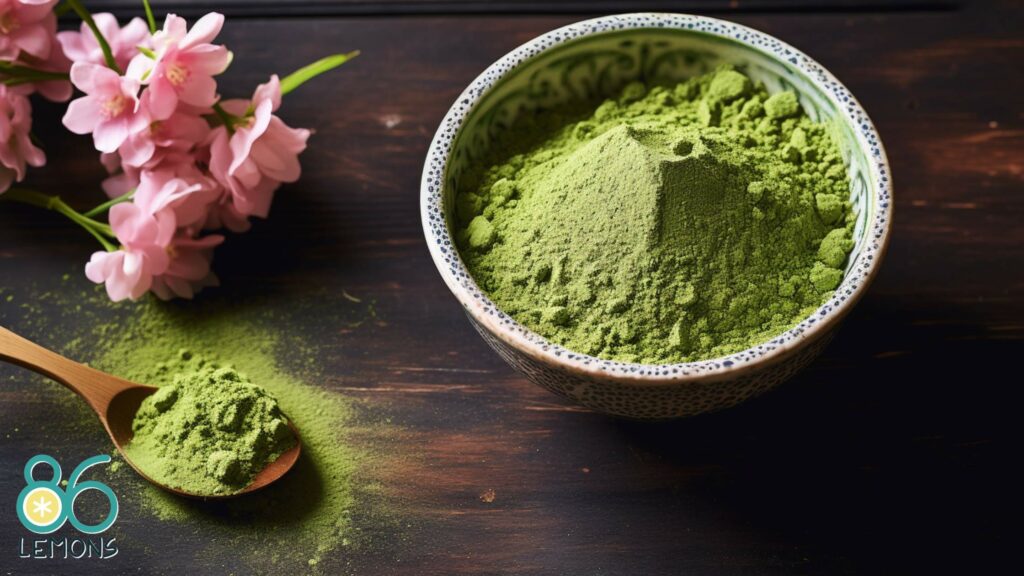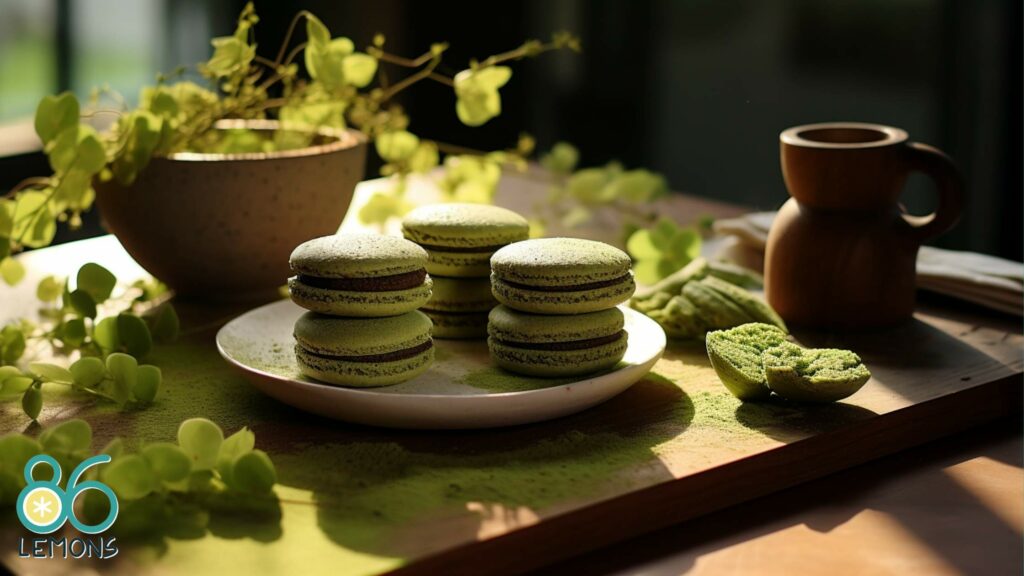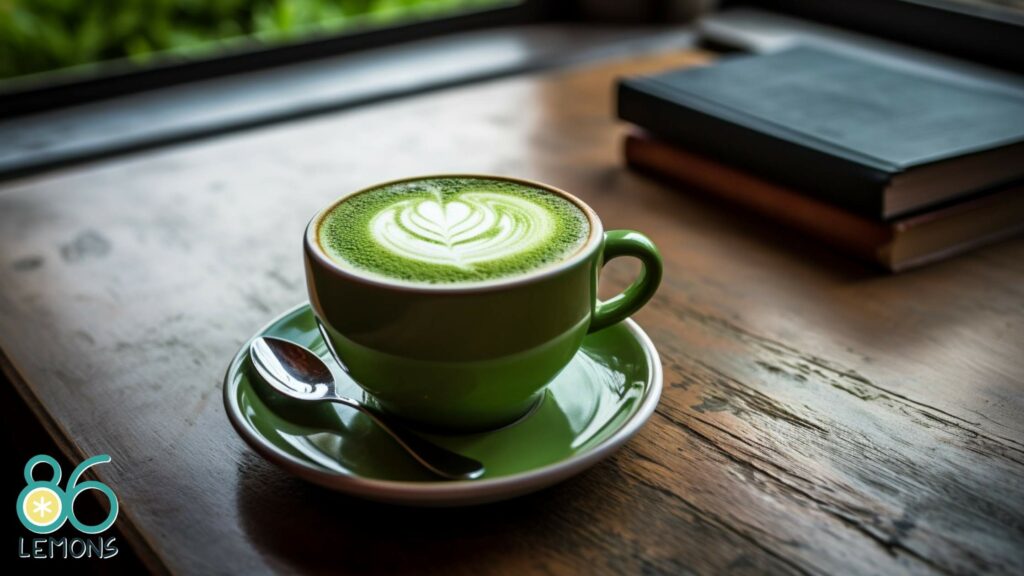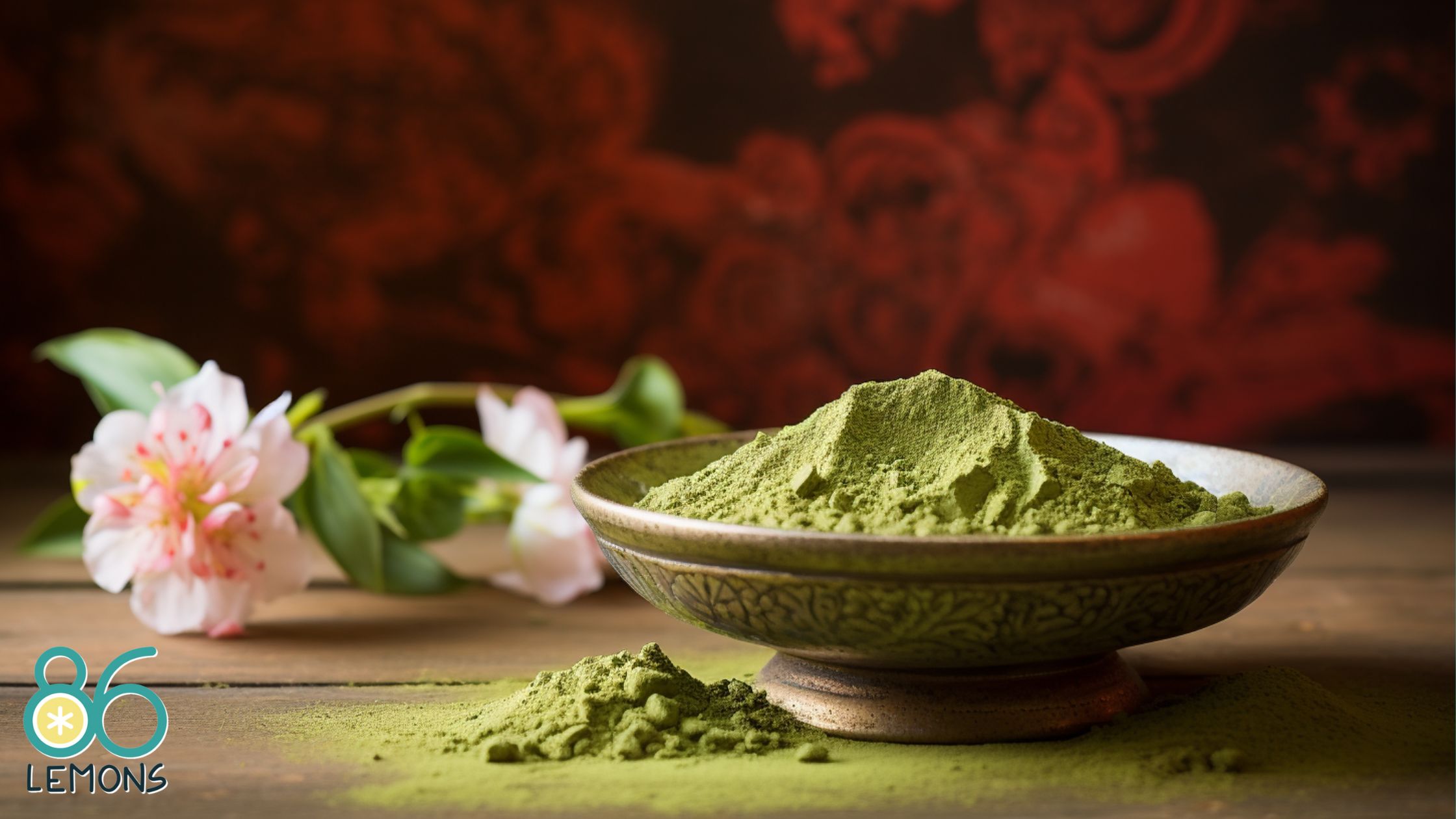Matcha, the vibrant green tea powder, has been a staple in Japanese tea ceremonies for centuries, and its popularity has soared in cafes and households around the world. As a health-conscious individual, you might be wondering: is matcha vegan?
When it comes to veganism, it’s essential to be mindful of all the ingredients in your foods and drinks. With matcha, you’re in luck—it’s derived from the dried leaves of the Camellia sinensis plant, the same plant that gives us other types of green tea.
This means that pure matcha powder itself is vegan—some vegan baking cookbooks use this ingredient as well. However, the preparation of matcha beverages often includes non-vegan additives such as honey or milk, but these can be easily substituted with plant-based alternatives.
Key Takeaways
- Matcha is a powdered green tea rich in antioxidants and flavor.
- Pure matcha powder is vegan, made exclusively from plant-derived ingredients.
- Vegan matcha drinks can be enjoyed by substituting dairy and sweeteners with plant-based options.
What Is Matcha?

Matcha is a finely ground powder made from specially grown and processed green tea leaves, celebrated for its rich nutrient profile and integral role in Japanese cultural ceremonies. As you explore matcha, you’ll discover its unique preparation and the benefits it can bring to your vegan lifestyle.
Origins and Cultural Significance
Matcha’s history goes back to when it was first discovered by a Japanese Buddhist monk in China. It was then brought to Japan, where it became an essential part of the time-honored tea ceremony, an art form and spiritual activity. It’s more than just a beverage; matcha is a symbol of hospitality, mindfulness, and respect.
Matcha in the Vegan Diet
For vegans, matcha serves as a perfect addition to the diet, free from any animal products. The nature of its production means that pure matcha consists solely of ground green tea leaves. This ensures that as you sip your way to serenity, you’re also upholding your commitment to a vegan lifestyle, savoring each cup with a clear conscience.
Health Benefits
Matcha is laden with health benefits due to its high concentration of antioxidants, specifically catechins. These powerful nutrients help combat free radicals in your body.
In addition to antioxidants, matcha is a good source of L-theanine, an amino acid that promotes relaxation without drowsiness. It’s also rich in vitamins and minerals, contributing to your daily nutritional goals.
Enjoying matcha can be a delightful way to support your overall health while treating yourself to a moment of calm.
Preparing Matcha: Ingredients and Methods
When embarking on the journey to make matcha, it’s essential you select high-quality ingredients and employ the proper methods. This will ensure your matcha experience is not only authentic but also vegan-friendly and delightful.
Choosing the Right Matcha Powder
Your matcha experience begins with choosing the right matcha powder. Look for ceremonial-grade matcha, which offers a rich flavor ideal for traditional matcha preparation. Ensure the powder is a vibrant green color—a sign of high quality—and sourced from reputable tea leaves, guaranteeing both taste and ethics align with your vegan lifestyle.
Traditional vs. Modern Preparation
To prepare matcha the traditional way, you’ll need a bamboo whisk called a chasen to mix the matcha powder and hot water until frothy. Modern preparation might involve a milk frother or shaker, though it could diverge from the creamy texture that whisking by hand provides. Whether going classic or contemporary, the goal is a smooth, lump-free matcha.
Vegan-Friendly Additives
After whisking your matcha, you may desire a creamier texture and a touch of sweetness. Opt for dairy-free milk like almond or soy. To sweeten, consider natural alternatives like agave nectar, maple syrup, or blended dates. These vegan additives enhance your matcha without compromising flavor or your lifestyle choices.
Vegan Matcha Recipes
Matcha isn’t just for tea ceremonies; it’s a versatile ingredient that can elevate your vegan recipes. From beverages to sweet treats, incorporating matcha into your vegan lifestyle is simple and delicious.
Beverages and Smoothies
Indulge in a vegan matcha latte that’s rich in flavor and creamy texture using oat, soy, coconut, or almond milk. If you prefer something colder, an iced matcha latte is just as refreshing and easy to make.
For those who love the frothy goodness of dalgona coffee, a vegan dalgona matcha latte combines whipped matcha with plant-based milk for a delightful twist. Smoothies, especially when mixed with protein powder, not only taste amazing with matcha but also give you an energizing start to your day.
Desserts and Snacks
Matcha transforms desserts and snacks with its unique flavor and vibrant color. You can make protein bars with a touch of matcha for an energizing snack or create a silky vegan matcha pudding that’s perfect for dessert or as a snack. Explore a variety of vegan matcha recipes for desserts ranging from cakes to cookies, all infused with the goodness of green tea.
Breakfast Ideas
Begin your morning with a bright and nutritious boost by adding matcha to your breakfast. Matcha pancakes are not only visually appealing but pack a flavorful punch that pairs wonderfully with fruit and vegan cream.
If you’re looking for a lighter option, incorporating matcha into your oatmeal or a breakfast smoothie ensures you start your day with a healthy dose of antioxidants.
Nutritional Information and Considerations

Before munching on that matcha-flavored mochi or any other matcha snack, it’s important to look at its nutritional profile first. This includes calories and macronutrients, as well as its caffeine content. Matcha is not only a vegan-friendly option but also packed with nutrients that can contribute to your overall health.
Caloric and Macronutrient Content
Matcha is a low-calorie beverage, typically containing around 10 calories per teaspoon. However, these calories can increase depending on how you prepare your matcha drink. Here’s a quick breakdown of matcha’s macronutrients:
- Calories: Approx. 10 per teaspoon
- Carbohydrates: Minimal, but varies based on preparation
- Protein: Trace amounts
- Fiber: Minimal
- Fat: Virtually none; may increase with added milk in lattes
- Saturated Fat: None in plain matcha
- Cholesterol: None
- Sodium: Negligible
- Sugar: Naturally contains no sugar; added sugars will vary by recipe
Since matcha is made by grinding the whole tea leaf, you consume the entire leaf, making it a more nutrient-dense option compared to regular steeped green tea.
Are you also craving for chocolate? Satisfy your cravings guilt-free and healthily with this list of the best vegan dark chocolate brands!
Caffeine Content and Consumption Tips

Matcha is notable for its caffeine content, offering a caffeine boost similar to coffee but with a unique profile:
- Caffeine: Roughly 70 mg per serving (equivalent to 1 teaspoon of matcha powder)
To avoid overconsumption of caffeine, it’s advised that you monitor your intake of matcha, especially if you are sensitive to caffeine or consuming other caffeine sources throughout your day.
The caffeine in matcha is accompanied by an amino acid called L-theanine, which is known to provide a sustained release of energy without the jitters often associated with coffee.
Enjoying matcha in its traditional, unsweetened form as a hot tea or added to smoothies can keep it free of dairy, gluten, and additional sugars, maintaining its vegan and healthful qualities. Its signature frothy and creamy texture, when whisked properly, can make it a delightful treat without necessitating the addition of non-vegan ingredients.
READ NEXT: Vegan Fried Ice Cream


